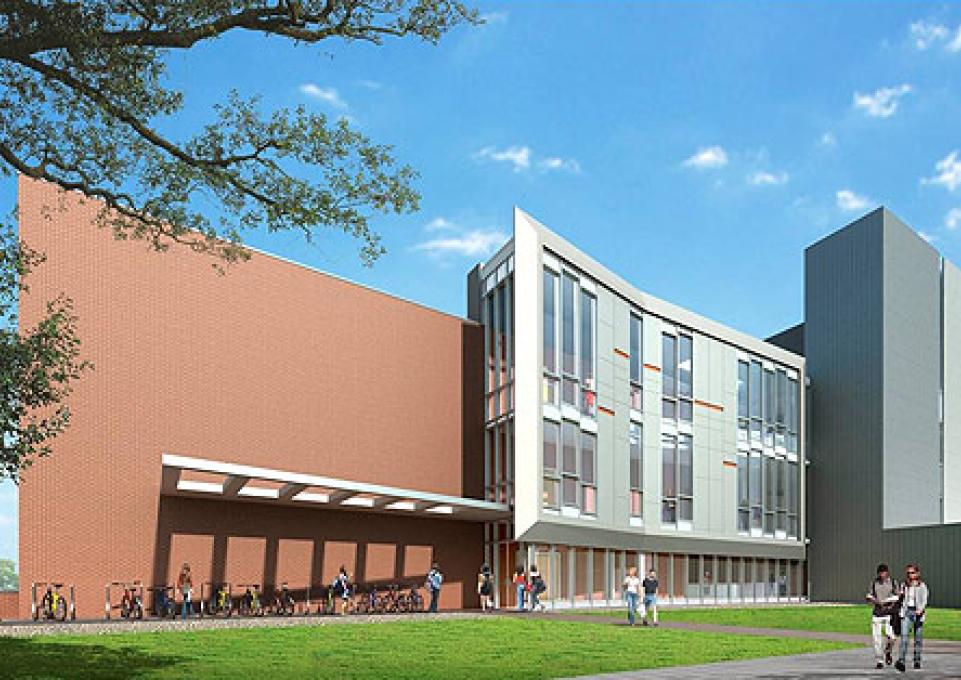
Buffalo State students will become even better prepared for careers in biotechnology, molecular biology, forensic chemistry, and medicine due to a $395,000 grant from the John R. Oishei Foundation. The grant awarded to the college this year will help finance state-of-art equipment for two laboratories included in the first phase of the college’s new science and mathematics complex that is slated to open in the fall.
“We are grateful for the foundation’s contribution,” said Mark Severson, dean of the School of Natural and Social Sciences. “Advanced scientific equipment is expensive, and this grant will give our students the opportunity to learn using modern instrumentation.”
The Oishei Foundation strives to be a catalyst for change to enhance economic vitality and the quality of life for the Buffalo-Niagara region. The foundation was established in 1940 by John R. Oishei, founder of Trico Products Corporation.
The equipment, such as an X-ray crystallography laboratory, provides students with hands-on experience in techniques widely used by the pharmaceutical and medical research industries—both growing fields. Severson said it’s his hope the new complex will raise Buffalo State’s profile for the natural sciences and attract more students who have the aptitude to pursue careers in medicine and biotechnology.
The laboratory and equipment are included in Phase I of the $108.5 million complex, a 224,000 square-foot facility that will house the Chemistry, Biology, Earth Sciences, Science Education, Mathematics and Physics departments, the Great Lakes Center, and a state-of-the-art planetarium, all of which will eventually replace the college’s 47-year-old science building.
“One of our goals is to train students to be laboratory scientists. Part of that training is to give them hands-on experience where they can use the same instrumentation that they would be using in the medical corridor in downtown Buffalo,” said Gregory Wadsworth, associate professor and chair of the Biology Department. “We want them to come in and figure out what it takes to get the equipment to work. There is no substitute for this. You couldn’t lecture on the sensitivity of the instruments.”
